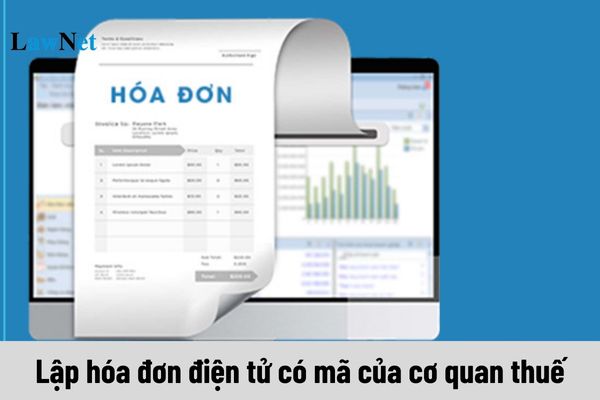Guidance on issuance of authenticated e-invoices in accordance with Decree 123 in Vietnam
What are authenticated e-invoices according to the law in Vietnam?
According to Clause 1, Article 3 of Decree 123/2020/ND-CP, an invoice is defined as an accounting document issued by an organization or individual selling goods or providing services, recording information on the sale of goods or provision of services. Invoices can be in the form of e-invoices or tax authority-ordered printed invoices.
Clause 2, Article 3 of Decree 123/2020/ND-CP specifically explains that an authenticated e-invoice is an invoice issued by a tax authority code before the organization or individual selling goods or providing services sends it to the buyer. These are presented in electronic data form, created electronically by the organization or individual selling goods or providing services, to record information on the sale of goods or provision of services in accordance with accounting and tax laws.
The tax authority code on an e-invoice includes a transaction number, which is a unique sequence of numbers generated by the tax authority's system, and a string encrypted by the tax authority based on the information provided by the seller on the invoice.

Guidance on issuance of authenticated e-invoices in accordance with Decree 123 in Vietnam (Image from the Internet)
What are details of the guidance on issuance of authenticated e-invoices in accordance with Decree 123 in Vietnam?
According to Point a, Clause 2, Article 3 of Decree 123/2020/ND-CP, an authenticated e-invoice is an e-invoice that is issued a code by a tax authority before the organization or individual selling goods or providing services sends it to the buyer.
Article 17 of Decree 123/2020/ND-CP stipulates the preparation of authenticated e-invoices as follows:
(1) Preparing authenticated e-invoices:
- Enterprises, economic organizations, other organizations, households, and individual businesses that fall under Clause 1, Article 14 of Decree 123/2020/ND-CP access the General Department of Taxation's electronic portal to prepare invoices using the account provided during registration to:
+ Prepare invoices for the sale of goods and provision of services.
+ Digitally sign the prepared invoices and send the invoices for the tax authority to issue codes.
- Enterprises, economic organizations, other organizations, households, and individual businesses using authenticated e-invoices through an e-invoice service provider access the service provider's webpage or utilize the e-invoice software of the unit to:
+ Prepare invoices for the sale of goods and provision of services.
+ Digitally sign the prepared invoices and send the invoices through the e-invoice service provider for the tax authority to issue codes.
(2) Issuing invoice codes:
- Invoices issued with a code by the tax authority must ensure:
+ Full content of the e-invoice as stipulated in Article 10 of Decree 123/2020/ND-CP.
+ Correct format of the e-invoice as stipulated in Article 12 of Decree 123/2020/ND-CP.
+ Accurate registration information as stipulated in Article 15 of Decree 123/2020/ND-CP.
+ Not subject to the cessation of using authenticated e-invoices as stipulated in Clause 1, Article 16 of Decree 123/2020/ND-CP.
- The General Department of Taxation's invoice code issuing system automatically issues invoice codes and sends feedback on the result to the sender.
(3) Enterprises, economic organizations, other organizations, households, and individual businesses selling goods or providing services are responsible for sending the authenticated e-invoice to the buyer.
The method for sending and receiving invoices is agreed upon between the seller and the buyer, ensuring compliance with the law on electronic transactions.
What are general regulations on the format of authenticated e-invoices in Vietnam?
According to Article 12 of Decree 123/2020/ND-CP, the format of e-invoices is generally regulated as follows:
- The e-invoice format is a technical standard that defines the data type and data length of information fields used for transmitting, storing, and displaying e-invoices. The e-invoice format uses XML (eXtensible Markup Language) to facilitate electronic data sharing between IT systems.
- The e-invoice format consists of two components: a business data component of the e-invoice and a digital signature data component. For authenticated e-invoices, there is an additional component containing data related to the tax authority code.
- The General Department of Taxation develops and publishes the business data component of the e-invoice, the digital signature data component, and provides tools to display e-invoice contents as stipulated in this Decree.
- Organizations and enterprises selling goods or providing services, when transmitting e-invoice data directly to the tax authority, must meet the following requirements:
+ Connect with the General Department of Taxation through a private leased line or MPLS VPN Layer 3 channel, including one main transmission channel and one backup transmission channel. Each transmission channel must have a minimum bandwidth of 5 Mbps.
+ Use Web Service or Message Queue (MQ) with encryption as the connection method.
+ Use SOAP protocol to package and transmit data.
- The e-invoice must be displayed fully and accurately, ensuring that it does not lead to misunderstandings, so that the buyer can read it using electronic means.

